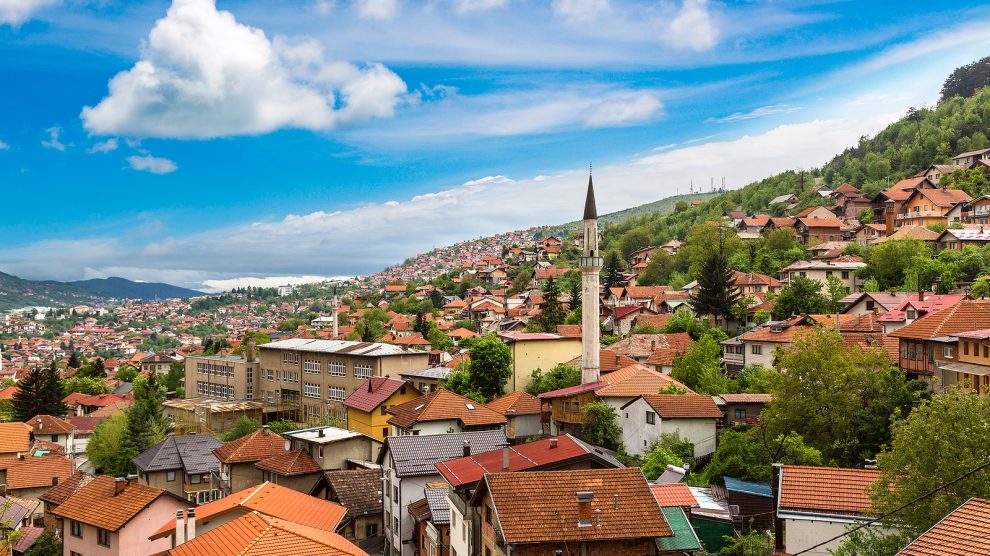As governments and civil society organisations in the region work to fight illicit financial flows, recent geopolitical developments have made that important work trickier.
Russia has established an opaque network of patronage in the Balkans that it uses to influence decisions in important markets and institutions, a new report by the Global Initiative Against Transnational Organised Crime (GI-TOC) has warned.
The war in Ukraine has created a set of circumstances that threaten to increase illicit financial flows (IFFs)—which promote rent seeking, drain public resources, undermine confidence in the state, and harm business environments—in the region.
- Without the EU, Poland would be a much poorer place
- What the end of the Black Sea Grain Deal implies for Ukraine and the world
- Russia’s Odesa attacks recall Serb destruction of Dubrovnik
Illicit outflows make up three to five per cent of global gross domestic product (GDP) but 8.3 per cent of Bosnia and Herzegovina’s (BiH) GDP, 7.8 per cent of Kosovo’s, and 5.7 per cent of North Macedonia’s.
Between 2000 and 2020, 18.7 billion US dollars of illicit money left Serbia, 18 billion US dollars left Bulgaria and Croatia, and 13 billion US dollars left BiH. Illicit inflows account for 4.8 per cent of Bulgaria’s GDP and 4.7 per cent of Croatia’s, and IFFs are estimated to account for six per cent of the total GDP of the region.
“The Balkans’ strategic geographic position, acting as a gateway between Asia and Western Europe, coupled with an ecosystem of state capture, institutional weaknesses, organised crime and a rampant shadow economy, make the region particularly susceptible to IFFs,” says Vanya Petrova, author of the report.
All eight countries analysed in the report—Albania, BiH, Bulgaria, Croatia, Kosovo, Montenegro, North Macedonia, and Serbia—have informal sectors of their economies that exceeded 25 per cent of GDP in 2022. Four—Albania, BiH, North Macedonia, and Serbia—exceeded 31 per cent. The widespread use of cash in the region also facilitates IFFs.
Even as governments and civil society organisations in the region work to fight IFFs, recent geopolitical developments have made that important work trickier. The report identifies large infrastructure investments the last few years—driven by China’s Belt and Road Initiative projects—as a major catalyst of commercial flows.
But Russia’s invasion of Ukraine—and the subsequent rush by blacklisted Russian elites to find new ways to circumvent Western sanctions—have further accelerated capital flows through the Balkans.
As the European Union (EU) seeks to crack down on the facilitation of bypassing existing sanctions rather than introducing new ones, it has identified the Balkans—as well as Georgia, Armenia, Turkey, Kazakhstan, and Kyrgyzstan—as hosting potential routes for laundering sanctioned products.
“The combination of state and media capture, simmering ethnic divisions between and within countries, the slow pace of EU accession and the legacy of Russian cognitive bias make the region a gateway for sanctions evasion,” the report warns.
Because many European countries have imposed travel bans for Russians, Serbia is one of the few remaining routes for Russians to reach Europe. Almost 220,000 Russian citizens have entered Serbia and 5,000 companies have been registered there by Russian nationals since the start of the war in Ukraine. The report notes that the establishment of so many firms in Serbia offers fertile ground for money laundering.
While both Serbia and BiH are candidates for EU membership, neither have introduced sanctions on Russia despite Brussels’ urging.
The threat posed by ‘citizenship through investment’
The EU has also tried—to no avail—to pressure two other Balkan candidates for EU membership, North Macedonia and Montenegro, to phase out their ‘citizenship for investment’ programmes due to risks of money laundering, fraud, corruption, and sanctions-evasion.
Despite the European Commission’s urgings, Podgorica has continued to dole out a record number of honorary citizenships. In the period considered by the report last autumn, the greatest proportion of new Montenegrin citizenships—38 per cent—went to Russian nationals, followed by 23 per cent to Chinese nationals.
The use of real estate as a means of holding value is a common way to bypass sanctions, and Montenegro’s coastline remains a preferred location for many Russian oligarchs and their yachts.
Albania had its own ‘citizenship for investment’ programme but ended it in March 2023 after EU pressure. Foreign citizens can still deposit up to two million euros in non-declared money into Albania’s banks and enjoy legal immunity and a low five to ten per cent tax.

The need for ‘strategic decoupling’
To fight Russia’s illicit actions in the Balkans, the report urges a macro-level “strategic decoupling” of Europe’s economy from Russia’s and “strategic investment” by the EU and US in Balkan economies to help make them less vulnerable to and reliant on Russian money. It also calls for “exposing and targeting the loci of political corruption, and increasing the level of anti-money laundering enforcement against Russian financial flows in the Balkans.”
“There is a critical need to increase the quantity and quality of data available on the nature and magnitude of IFFs so as to comprehend their key drivers, channels and trends, and initiate a stronger policy response,” the report concludes.
“As a transnational problem, the push to curb IFFs requires coherence within and between national and international normative frameworks and coordinated action within the scope of EU enlargement and the Berlin Process.”
Unlike many news and information platforms, Emerging Europe is free to read, and always will be. There is no paywall here. We are independent, not affiliated with nor representing any political party or business organisation. We want the very best for emerging Europe, nothing more, nothing less. Your support will help us continue to spread the word about this amazing region.
You can contribute here. Thank you.


